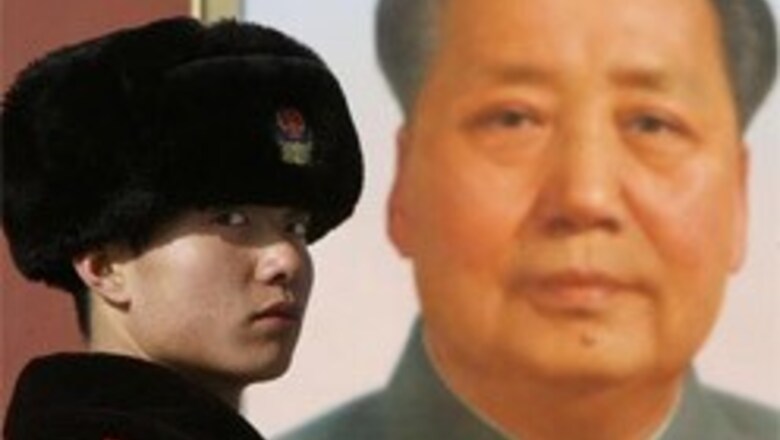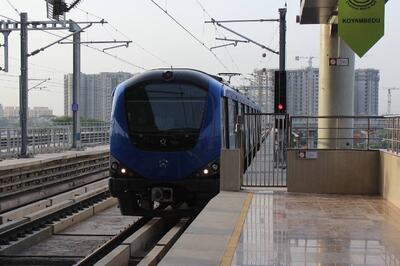
views
Kuqa, China: Knife-wielding assailants attacked a road checkpoint in China's troubled far west on Tuesday, killing three guards and raising the death toll to 31 from a surge in violence coinciding with the Beijing Olympics, officials said.
The state-run Xinhua News Agency said an unknown number of attackers jumped from a vehicle at the checkpoint in Yamanya town in Muslim-dominated Xinjiang territory and stabbed four guards, three of whom died.
It was the third attack on government-linked guards this month in Xinjiang, which borders Pakistan and Afghanistan and where an Islamic militant separatist group operates.
An officer at Yamanya town's police post confirmed the three deaths.
The officer, who gave his name as Tu'ersenjiang, said by telephone that those killed were local government employees who were taking down the names of people who passed through the checkpoint, and were not police or military.
''The case is still under investigation,'' Tu'ersenjiang said.
A man at the public security bureau in Shule county, where Yamanya is located, said the injured officer was in critical condition at a hospital.
''He has pulled away from danger,'' said the man, who refused to give his name because he was not authorized to speak to the media. ''We are now waiting for him to wake up and speak so we can find out more details about what happened.''
On Sunday, militants tossed homemade bombs at government buildings in Kuqa city, then fought with police. Twelve people died, officials said.
Six days earlier, assailants rammed a truck into a group of border police and then attacked them with knives and homemade bombs in Kashgar.
No one has claimed responsibility for the attacks, though government officials have suggested terrorism is behind the violence and insist it is not linked to the Olympics.
But with three audacious attacks in just more than a week and the appearance online of videos threatening the Olympics, ethnic Uighur extremists may be trying to use the games as a way to force themselves out of obscurity into the world's view.
Residents and experts say many Uighurs are seething with anger toward Chinese immigrants who are seen by many as symbols of government oppression.
PAGE_BREAK
Anti-government violence has flared in Xinjiang for years. But Nicholas Bequelin, a researcher with New York-based Human Rights Watch's Asia Division, said Sunday's attacks were more highly organized. Thirteen men and two women used an explosive-laden three-wheeled vehicle and lobbed bombs at 17 sites in the city in quick succession.
''It presents several new aspects which were not present in previous incidents in Xinjiang,'' Bequelin said. ''One is the sophisticated coordination of the attacks. It was not just one attack. It's a string of bombings that requires much more planning and a larger organization to carry out, especially at the time of the Olympics when the security is so high.''
Government crackdowns often silence the Uighurs (pronounced WEE-gurs) or discourage them from speaking out. Most will only speak to reporters on condition of anonymity.
After the Kuqa attacks, groups of Uighurs in the city of 450,000 people strolled around the streets looking at the damage. Their Chinese neighbors appeared grim and were quick to denounce the violence. But many of the Uighurs seemed amused and cheerful. When asked if they endorsed the attacks, they wouldn't respond or said, ''I don't know.''
''If you look at the streets, everything seems calm and peaceful,'' said one merchant, who would only identify himself as Amar because he feared retribution. ''But behind it all, the situation is different. People are really angry.''
He accused the Chinese of restricting the study and practice of Islam. He also said Uighurs suffered job discrimination and were discouraged from using their Turkic language.
''If you are a Muslim, you are already a criminal suspect in the eyes of the Chinese,'' he said.
Dilxat Raxit, a spokesman for the German-based pro-independence World Uighur Congress, said in an e-mail that more than 90 Uighurs have been detained recently, and some had been tortured.
County chief Yusufujiang Maimaiti said ''there was not an ounce of truth'' to Raxit's allegations, but he would not say whether any arrests had been made.
The recent attacks have placed security forces on high alert and the mood is often tense at checkpoints.
While an Associated Press journalist and photographer were waiting in line to register at a police post outside Korla town, a policeman wearing a flak jacket and helmet walked over, pushed the reporter back and pointed his assault rifle at him.
''This is Chinese territory. You have to obey the rules,'' he said, keeping the gun pointed at the reporter as he glared at him for five minutes. After registering, the journalists returned to their vehicle and continued their journey.




















Comments
0 comment